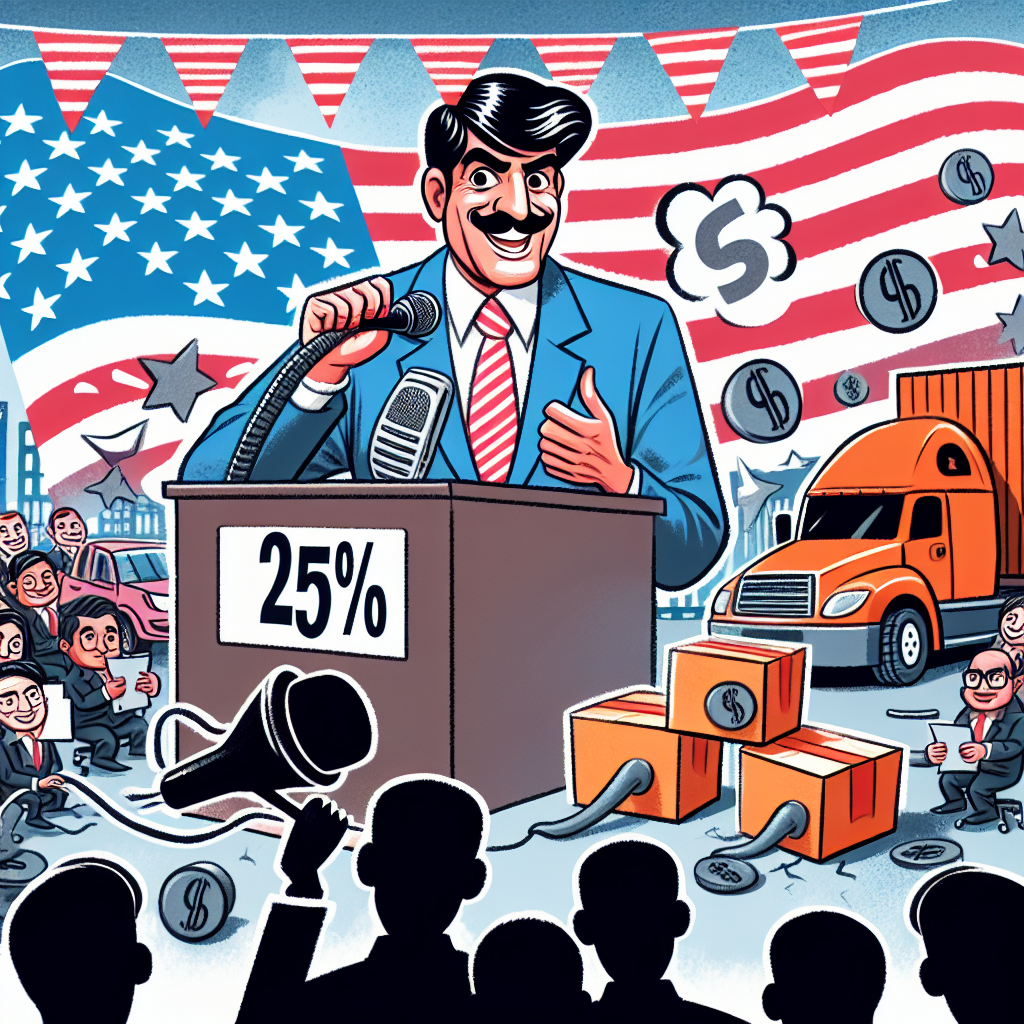Trump Imposes 25% Tariffs on Cars, Escalating Trade Tensions
Trump Imposes 25% Tariffs on Cars, Escalating Trade Tensions
Introduction
In a bold move that has intensified global trade tensions, former President Donald Trump announced the imposition of a 25% tariff on imported cars. This decision marks a significant escalation in the ongoing trade disputes, particularly affecting the automotive industry and international relations.
Key Details of the Tariff
- Tariff Rate: A 25% tariff will be applied to all imported cars.
- Targeted Countries: The tariffs primarily affect major car-exporting nations, including Germany, Japan, and South Korea.
- Implementation Date: The tariffs are set to take effect immediately, with no grace period for adjustment.
Implications for the Automotive Industry
The automotive industry is poised to experience significant disruptions due to these tariffs. Key implications include:
- Increased Costs: Car manufacturers may face higher production costs, potentially leading to increased prices for consumers.
- Supply Chain Challenges: The tariffs could disrupt global supply chains, affecting the availability of parts and components.
- Market Reactions: Stock prices of major car manufacturers have already shown volatility in response to the announcement.
Global Trade Tensions
This move by Trump is likely to exacerbate existing trade tensions between the United States and its trading partners. Key points include:
- Retaliatory Measures: Affected countries may impose their own tariffs on American goods, leading to a potential trade war.
- Diplomatic Strain: The decision could strain diplomatic relations, complicating negotiations on other trade agreements.
- Economic Impact: The broader economic impact could include slowed global trade growth and increased uncertainty in international markets.
Conclusion
The imposition of a 25% tariff on imported cars by former President Trump represents a significant escalation in trade tensions, with far-reaching implications for the automotive industry and global trade relations. As countries consider retaliatory measures, the potential for a trade war looms, underscoring the need for diplomatic solutions to mitigate economic disruptions.






































